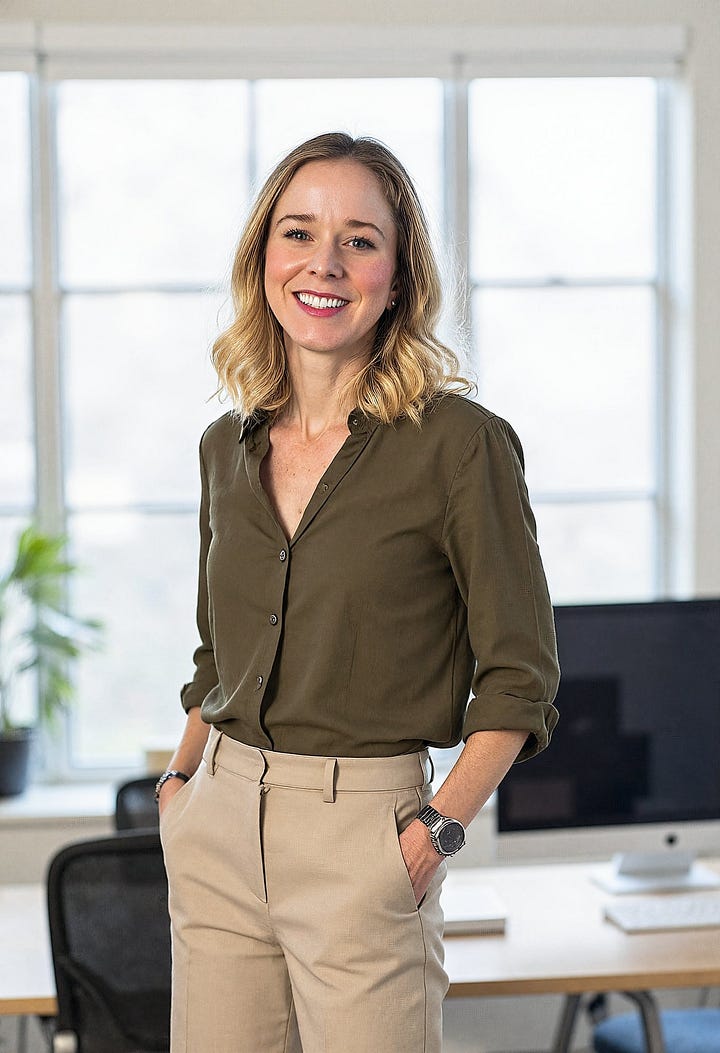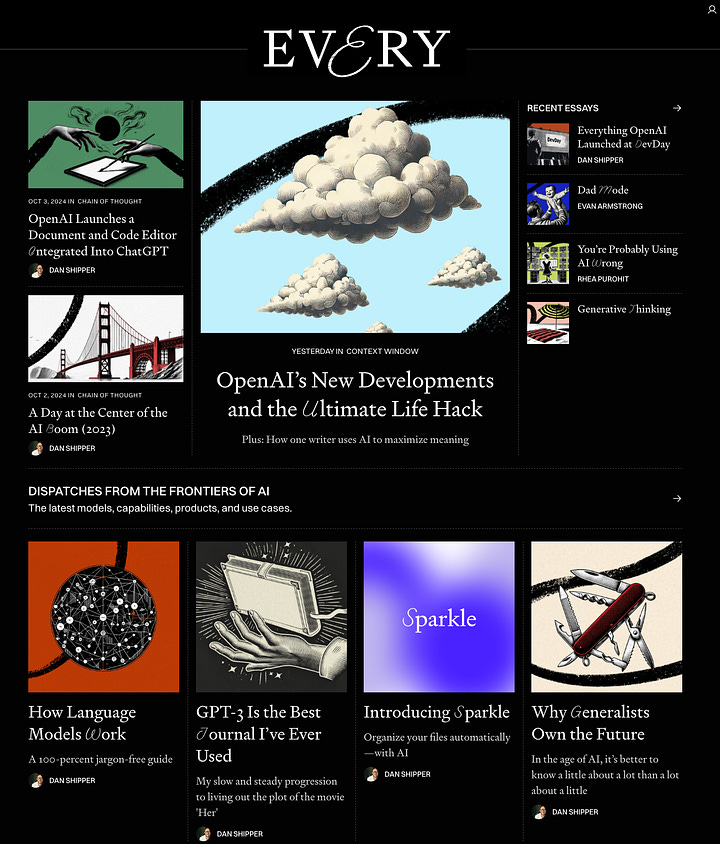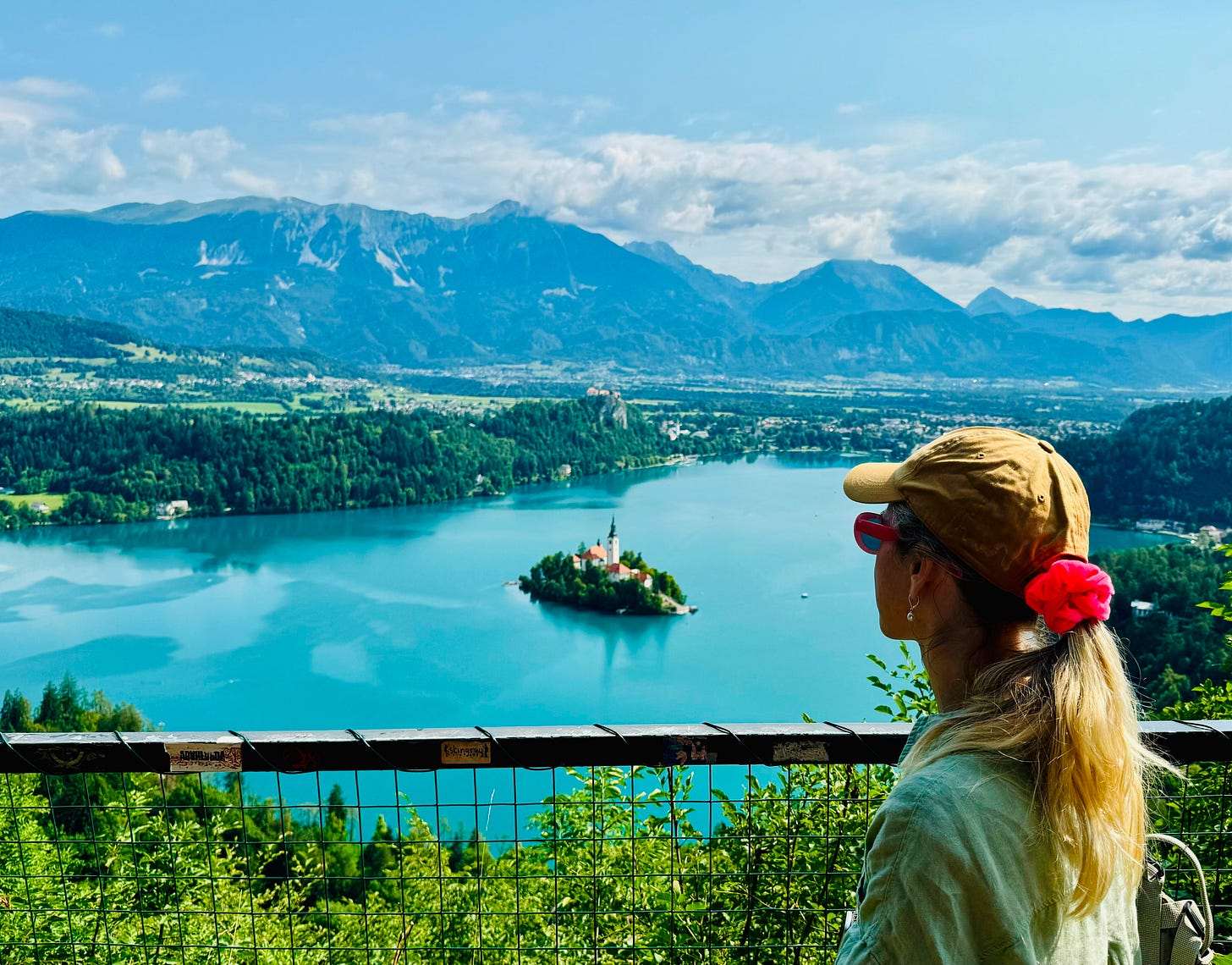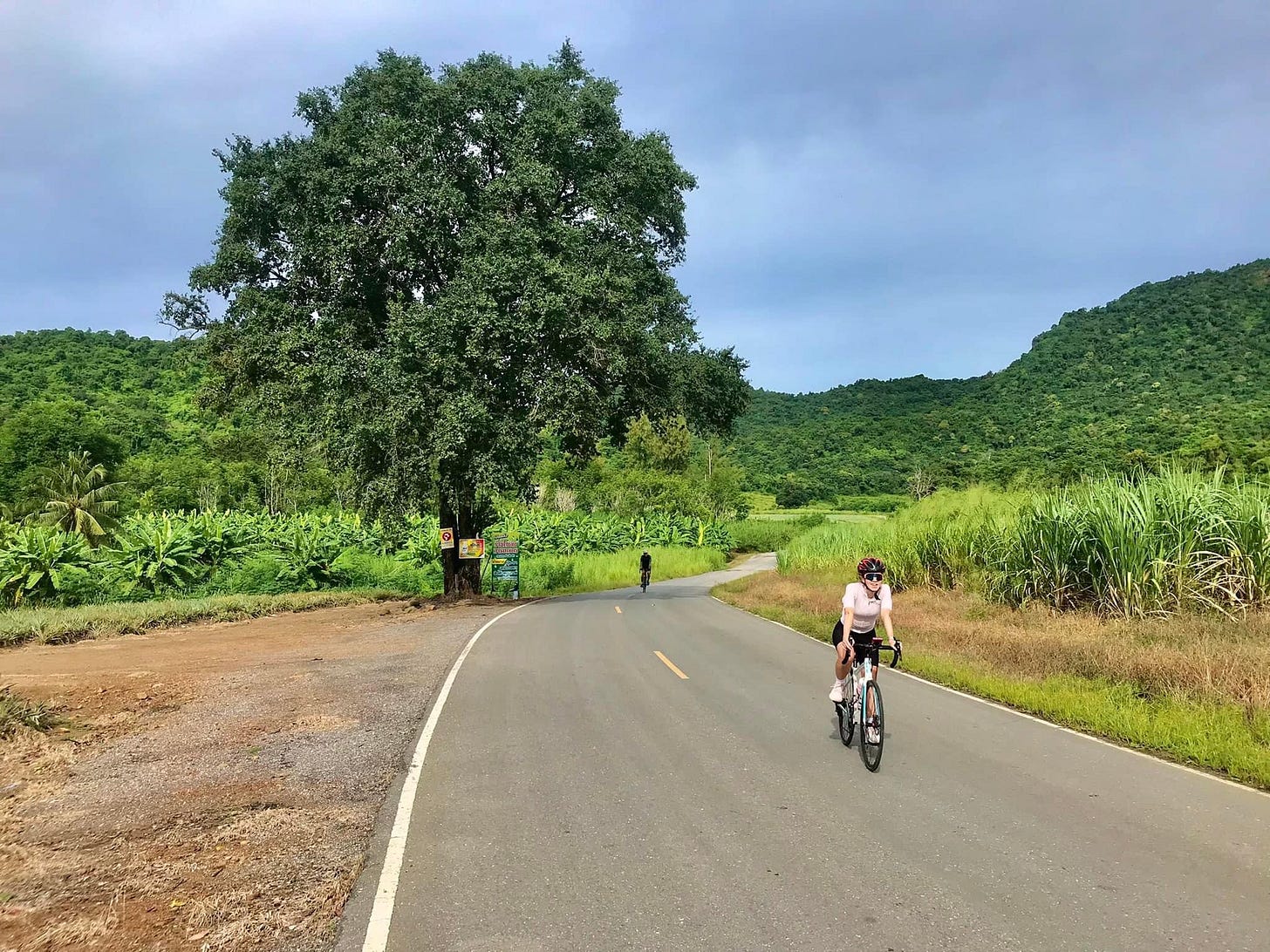5 Lessons I've Learned From 5 Months On Sabbatical
It's much more than just an absence of work
In May of this year, I struck out on a sabbatical of unknown length and outcome. I had been working for a couple of years at the company who’d acquired my startup earlier in 2022, and I was burned out and questioning what I wanted to do with the rest of my life. (You can read more about my entrepreneurial journey in a 3-part series that begins here.)
It’s now been five months since I stopped working full time. Here’s what I have learned so far.
1. Committing to nothing meant I could explore anything.
I started this Substack at the beginning of my sabbatical, where I noted that I wanted to explore some interests without the obligation to continue any of them.
This was partly due to the oft-repeated advice of other founders who sold their companies: Don’t immediately jump into your next business. I heard this advice often enough that I decided to take it seriously — that for a slightly uncomfortable period of time, I would commit to not committing to anything at all.
It hasn’t been easy to stick to this commitment. I started a podcast, and I seriously considered starting another ‘more serious’ one. But now I am 5 months in to my sabbatical, I’m glad I kept my obligations light, because it took all the pressure off.
I had spent the past 9 years working hard to achieve something, so at first it felt awkward to not have anything to show at the end of each week — at least publicly. But with time, that need for outside validation faded, especially as I came to understand that this phase would be temporary and I should cherish this brief moment of respite from striving.
This opened the door to pursue other interests and ideas without consequence for following through.
2. AI is amazing.
While working full time I had the feeling that I was starting to fall behind on all the exciting developments in AI. I used AI for some well-trodden shortcuts — summarizing content, brainstorming headlines for blogs, etc.
But I felt like I had no time to really dive into all the use cases, and that I might slowly become a bit of a dinosaur in the face of all this technology.
During my sabbatical, I started wading in. I read more of the philosophical aspects of AI via the excellent AI-focused publication Every and its accompanying podcast, AI & I.
Finally, this was the real antidote to the “Use AI to make millions of dollars by creating senseless drivel using someone else’s ideas in only 2 minutes a day” hyperbole I had become allergic to.
Following along with how these smart and creative thinkers were using AI, I realized I wasn’t too far off. The frustration I had felt trying to coerce AI to replicating an entire content workflow was misdirected — I had been expecting too much. I also was able to let go of the resentment I felt for an LLM being able to do what I have for years found to be enjoyable and high-leverage (writing). I came to the same conclusion as writer Rhea Purohit in her piece for Every titled ‘You’re Probably Using AI Wrong’:
“I stopped thinking of LLMs as tools that would write for me. Instead, I started using them to help me with a part of writing I don’t enjoy: being stuck.”
Now I am using AI more aggressively, but primarily for being a thought partner and tasks I don’t enjoy doing. Not to replace the parts of the process that I enjoy or am already good at.
In case you’re interested, here are some of my favorite use cases so far:
Transcribing handwritten journal entries and finding patterns in my thinking
Fun parlor games to play as a family, like Minecraft trivia and Mad Libs
Brainstorming pros and cons for various options when making decisions


3. Travel focuses the lens for my ideal home.
Within a couple of weeks of leaving my post in May, I learned that I’d have to leave the United States with my family for something like 9-12 months while we waited out the process of obtaining our US green cards. We could have returned to our native Australia for that time, but we’d be heading right into winter. So we had all the excuses we needed to plan an epic trip around Europe and Asia before spending summer in Perth.
So far we have hit up Turkey, Croatia, Slovenia, Denmark, and Thailand. There wasn’t too much rhyme or reason for that selection aside from the ability to periodically secure some education and socialization for our 7-year-old son. Each place has been amazing in their own unique way.
Like many travelers, I like to imagine my life if I moved to these places permanently. I fell hard for Denmark with its seemingly innate aptitude for design of all types, particularly urban planning. Everything is logical, yet still quaint. I loved the premise of biking everywhere from school pickup, to the store, to the opera. But the idea of Copenhagen in winter, dark and frozen, immediately shut down the illusion.
A common topic among travelers and expats is where you came from, why you left, and a summary of the pros and cons of the country you’re in at the time. Leaving the U.S., I could get some distance from the incessant chatter of issues facing the country (especially so in an election year). But it turns out that the U.S. doesn’t have a trademark on a cost of living crisis, housing shortage, healthcare woes, and a divisive political landscape.
No place is perfect. I have shared previously why I feel most at home in America (read: Why America is the place for me), which is a personal choice. Travel reminds me of what’s possible, but also what I appreciate about where we’ve chosen to call home.
4. The low-key joys of a healthier content diet.
Like many people, I wanted to spend less time on social media.
Most people have the vague sense that 30 minutes spent scrolling TikTok or Instagram first thing in the morning doesn’t get you fired up to start your day. I recently learned exactly why in this excellent podcast interview with Neuroscientist Tj Power. (Link to episode below.)
Dopamine, the ‘motivation hormone,’ is actually depleted by social media. You get a quick burst of dopamine from TikTok or even refreshing your email inbox. But just like a sugar high, that dopamine spike quickly leads to a crash.
When dopamine is low, you will procrastinate, and lack the focus required to achieve whatever you’re working toward. So you turn back to social media and all the gratifying ‘dings’ of messages and emails in order to get a fix.
On sabbatical I wanted to break this habit, and replace my screen time with better quality content. The key phrase there is replace.
Productivity expert Cal Newport has a great model for this. One of his podcast episodes describes a hierarchy of content types, ranked by ‘quality’. His ranking of content quality from best to worst:
Books are heavily researched and fact-checked, and represent years of thinking on the part of the author, and generally many more years of practice or research in their area of expertise.
Articles published in high-quality publications fall on the next rung on the ladder. Encompassing perhaps just one idea, but also requiring fact-checking and some editorial oversight.
Blogs and podcasts make up the middle of the hierarchy, containing a pretty wide range of quality and insights depending on the author/host/guest.
Social media has the least editorial oversight and production time, and therefore the lowest quality of ideas and information.
Newport’s advice for people aspiring to read more but found their memory spans degraded by social media is to start reading books that are interesting. Start with romance novels or thrillers if you must. But develop a habit that’s enjoyable, and you can throw in some more intellectual material over time.
In order to ramp up my own reading habit, I’ve mixed some page-turners in with my usual non fiction self-development fare. My favorites so far have been two Dune prequels (House Atreides and House Harkonnen), Smilla’s Sense of Snow, and Tuesdays with Morrie.
I am glad to see from my Goodreads account that I have increased the number of books I have read over the past year from 19 books in 2023 to 23 books so far in 2024. If I continue at this pace, my book reading will be up 53% YOY.
Now that I have built this habit, I generally reach for my Kindle than my phone when in need of entertainment. My attention span is better, I’m more present, and I don’t get that over-stimulated feeling that comes from too much screen time.
5. It’s okay to enjoy the chase.
Workaholism is a real addiction with equally real side effects.
But it also seems to have become passé to admit that you like to work. Any hour you spend working, after all, is an hour that you’re not taking care of your body or spending time with your family. And its true that too many people are struggling to pay the bills on their income and are overworked, and they’d give an arm to have some time off. As the saying goes, “All work and no play makes Jack a dull boy.”
But after living like a retiree and spending time with other retired people these past few months, I’m ready to admit that I really enjoy playing the game of business. I like working on something with defined goals and outcomes.
One the most enjoyable chapters of this sabbatical was getting into road cycling in Thailand. I have a 10-day bike tour with my dad and brother coming up in December, and I had the opportunity to rent a bike and do some training here in Thailand. I didn’t expect to have this much fun pushing myself to keep up with a pack of 60-year-olds in lycra. Collapsing on the floor after a 3 hour ride hits that striving urge, even more so when I see my average speed inching up each week.
With time for reflection I have come to appreciate the achievement-oriented facet of my personality. That in the right context, it can be harnessed in a safe and useful way, rather than a quick path to burnout. It’s okay to enjoy the chase.
Soon I will return to paid work, and I can’t wait. (Plans are afoot… more to come on this soon!)
Conclusion
For me, this sabbatical been about far more than absence of work or an extended vacation. (Believe it or not, that gets old pretty fast.)
It has been a reset for my mind and my body. It has helped me to refocus on how I want to live my life, my real interests, the value I offer to the world not just as a worker but as a wife, mother, friend, and human being.
There was an article in the WSJ recently about the rise of “micro-retirements” and I shared my experience in this post on LinkedIn, paraphrased below.
I wish the concept of sabbaticals and career breaks were more acceptable in the workplace. (Particularly in the U.S. — some countries like Australia have pretty good mechanisms like gap years and long service leave.)
The past couple months of traveling with my family, decompressing, catching up on life admin, and exploring personal hobbies and interests, has been amazing. I feel refreshed in a way that's not attainable on a 1-week vacation.
Beyond being a personal benefit though. I know I will enter the next phase of my journey energized, focused, and ready to handle the next stage of life’s marathon.




Thank you for sharing Kiri,
Very insightful as always. I had the pleasure of doing such a sabbatical some years ago and I can recognize lots of your experiences. One thing to watch out for is that some of the bad habits tend to creep back into your life when you’re back in the normal working life. At least that happened to me.
Anyway, looking forward to more insightful thoughts from you.
Thank you Kiri, these are terrific insights, generous of you to share. Would be good to catch up, not sure your current email so drop me aline when you have time, Cheers, Tony Weisman